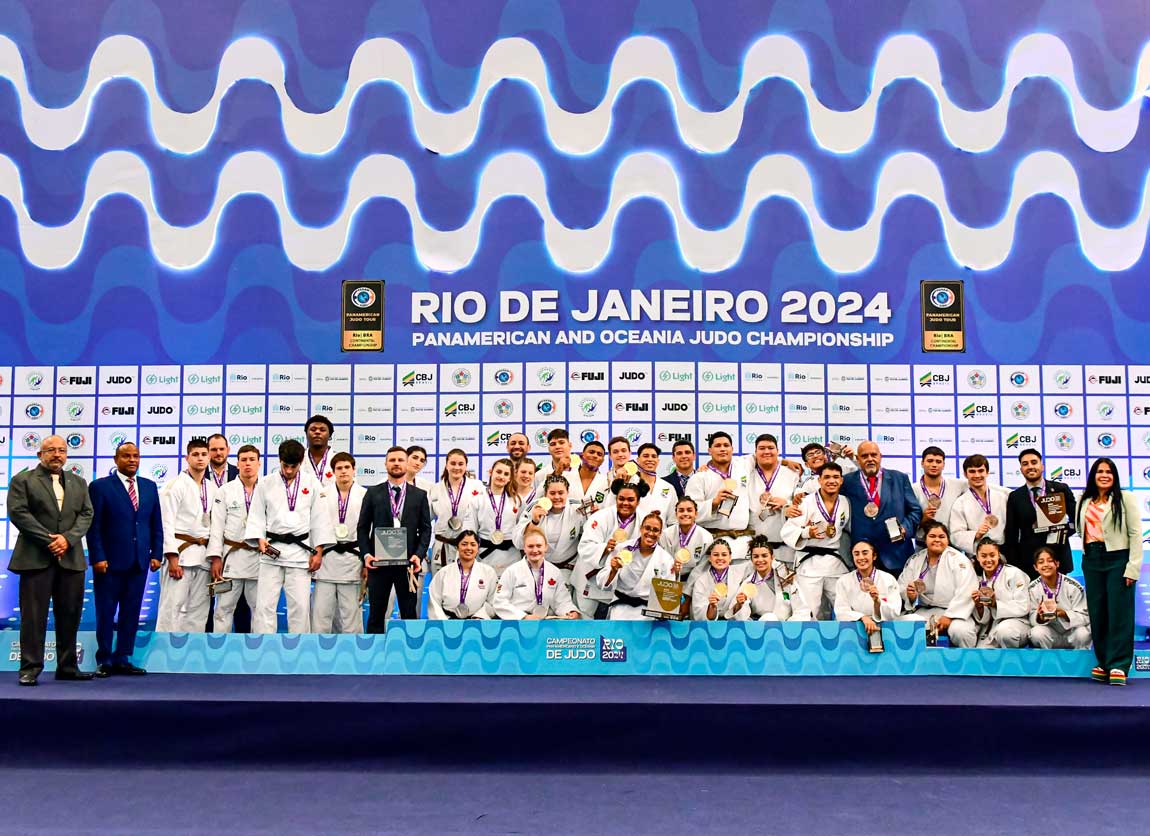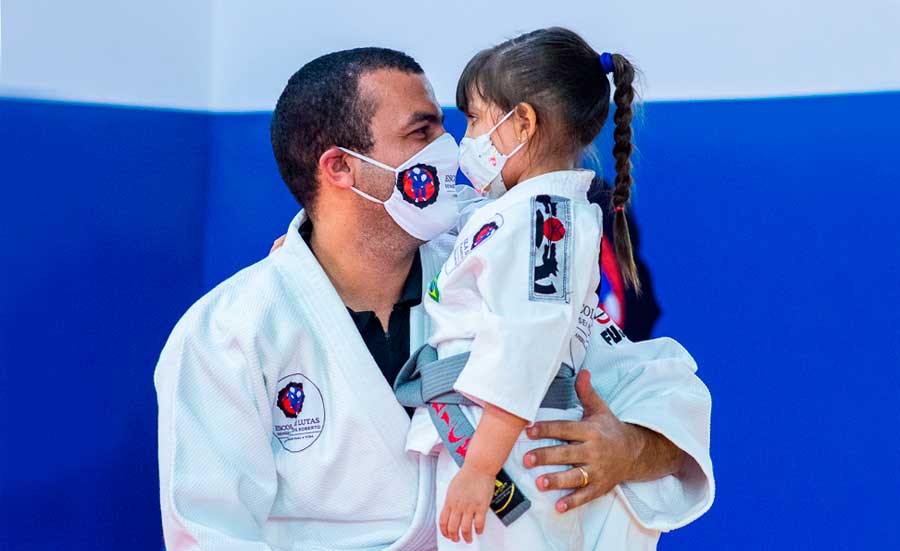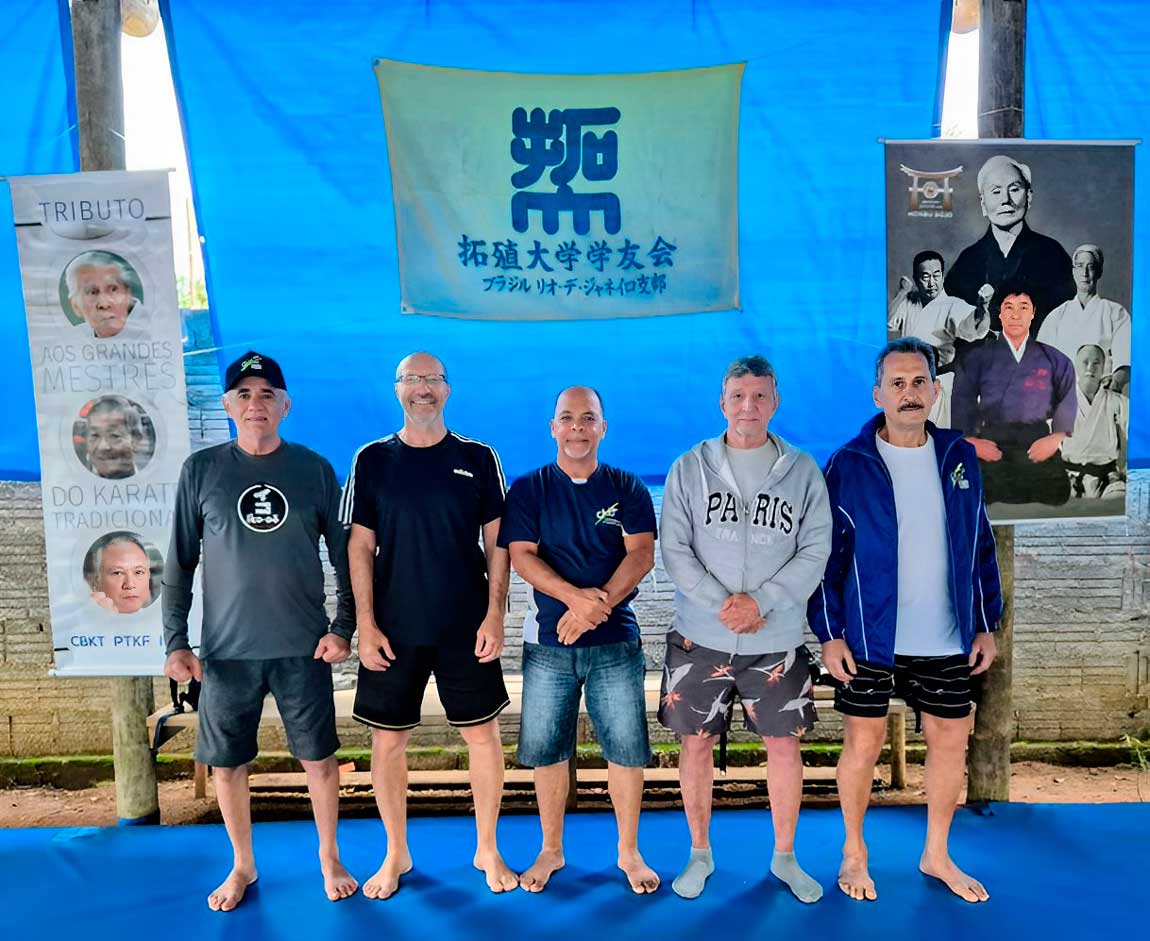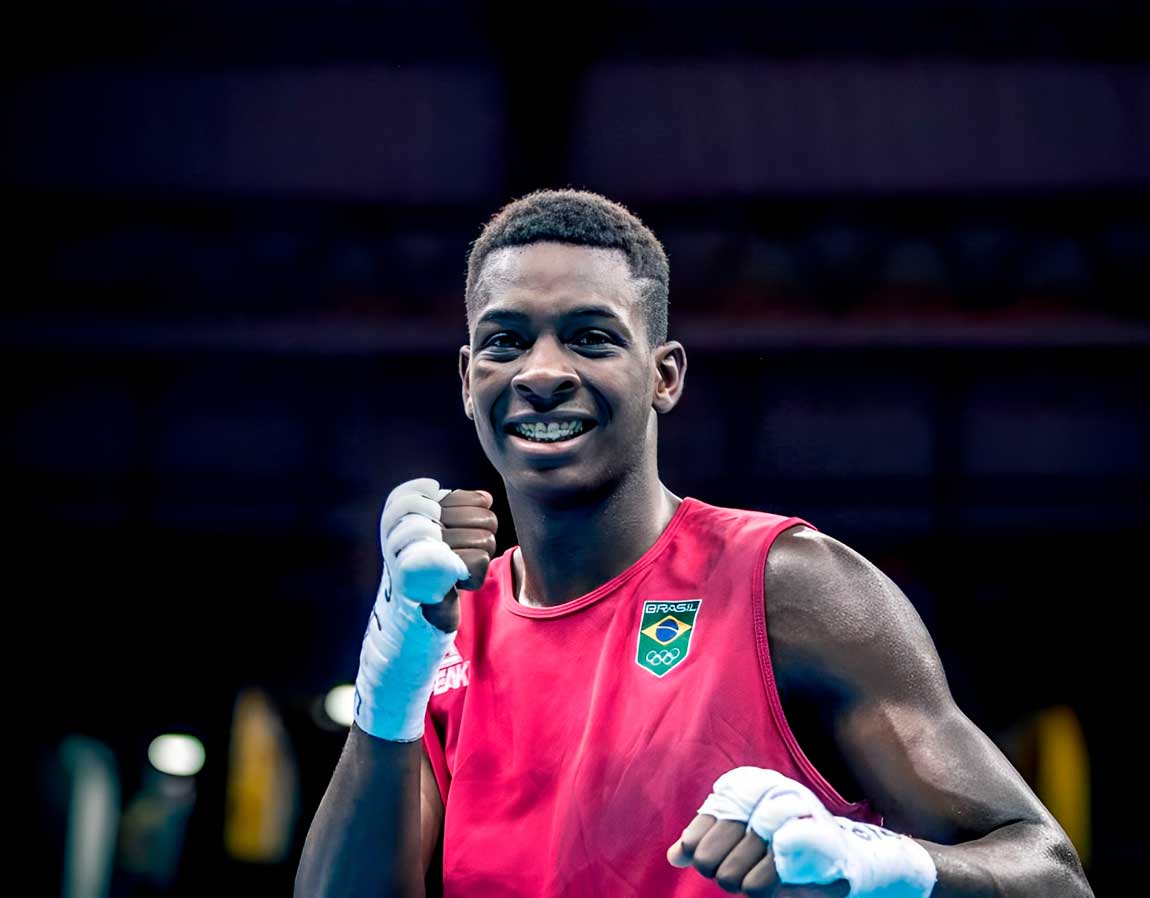25 de abril de 2024

 Marcos Oliveira with Alice Cruz
Marcos Oliveira with Alice Cruz
The benefit of judo in the lives of children and young people with autism spectrum disorder is evident at every training session due to the great increase in psychomotor capacity and self-esteem
Therapeutic Activities
January 31, 2021
By ISABELA LEMOS and PAULO PINTO
Photos DIEGO FORERO
Manaus – BRAZIL
A centenary art, judo seeks to awaken the best part of the human being in its purest essence. With a moral code that includes virtues such as self-control, friendship, prosperity and mutual respect, the martial art from Japan has become a truly useful sport for everyone, due not only to its inclusion capacity, but also to the health benefits that come from practice. Ten years ago, the black belt teacher san-dan (3rd dan) Marcos Roberto Moura Oliveira started to teach judo classes for children diagnosed with autism spectrum disorder (ASD) and reveals that every single class is a victory based on discoveries and achievements for his students and for him.
According to the psychologist and psychoanalyst Maria Paula de Souza, one of the possible directions on clinical work for patients of the autistic spectrum is to favor the social bond and encourage the new friendship bonds. Marcos Oliveira claims that students develop better social interaction and cognitive and motor coordination, which generates great autonomy for them.
“Furthermore, judo promotes responsibility and discipline, which are important aspects. For some children with ASD, averse to physical contact, judo helps to overcome this barrier, which initially may seem impossible or intangible.”
The experience of teaching young people with autism spectrum was initially seen as a challenge. In 2011, professor san-dan worked at a gym where he received his first special student, Rafael Braga, who had just been diagnosed with ASD at the age of 3. Although he still had no experience at that time, he set out to give his best and, since then, he has been studying and understanding better how to approach and teach young people with autism spectrum.
Development of psychomotor skills
Psychologist and psychoanalyst Maria Paula de Souza points out that the body is a central theme in discussions about the treatment of people on the autistic spectrum. “There are different ways of understanding this, coming from medicine, psychology and psychoanalysis. The psychoanalysis provides the understanding that the psychic constitution of the autistic subject, occurs in a way that his body is felt in a fragmented way, that is, there is no total body scheme. Because of this, there are greater difficulties related to body tract.”
Judo (柔道), or rather, the gentle way, is a martial art practiced as a combat sport created by Jigoro Kano in 1882. Its main objectives are to strengthen the physique, mind and spirit in an integrated manner, in addition to developing techniques self-defense. Therefore, Professor Oliveira cites some of the main benefits that physical activity based on the practice of judo provides.
“The practice of judo helps to improve gross motor coordination, which is linked to the individual’s body control, such as running, jumping, kicking, climbing up and down a ladder. The gain from these simple actions directly impacts the social issue of these children. When we talk about fine motor coordination – picking up a pencil, opening a bottle or even taking a glass of water to drink, actions that seems simple – there is a great degree of difficulty for most children with autism spectrum”, explains the san-dan sensei.
His experience made it clear that each child responds in a different way. Moura Oliveira has had students served individually and who, over time, have joined the group with more children. He reports that there are parents who seek individual lessons for their child; however, the teacher recommends that the child join the group at some point. This is because the gain is much greater than in an individual class. The classmates welcome these students very well and are willing to help before, during and after classes, always trying to interact to make them feel welcomed. The most interesting thing, according to Marcos Roberto, is to see that everyone wins and grows with this interaction.
Currently, his dojo in Manaus (AM), “Sensei Marcos Roberto Wrestling School”, serves 50 children between judo and karate and 12 of them have an autistic spectrum. With the proposal to assist and promote motor development as a whole, the teacher has as main concern to respect the individuality of his students, not only thinking about competitions, techniques, throws, immobilizations, chokes and armlock. “We must provide the maximum motor experiences for these children, so that they become real black belts, inside and outside on the tatami.”
The teacher states that one of his main focuses is to make the activity pleasant and fun, encouraging students to express themselves through a system of exchange of figures, gestures or even with speech. For him, each person has their particularity and way of communicating. Currently, he intends to start with the students the orientation through figures, in which they will perform the action after viewing an image, which should be a very good experience, with great acceptance and understanding.
Marcos Oliveira explains that it is normal for students to need more attention in the beginning, especially in the first classes. However, parents are the ones demand the most. “Many of them even question the children’s ability. After their children manage to make the move, I always try to look at their parents’ reaction and see a smile and a look of relief.”
Marcos wants parents to never stop believing in their children’s psychosocial development, supporting them and being with them at all times. The teacher advises that all colleagues, both judo teachers and Physical Education professionals, do not fail to receive a student who presents ASD. We must try in every way to help them and insert them in the community, as they are excellent and differentiated human beings.
“Support these students and their parents unconditionally. Look for the knowledge to help, because working with them is above the technician, it is inside everyone. We have to love meeting and understanding these students. When the parents come to talk, the explicit joy on their faces shows that I am doing a good job.”
Notable experiences for those who see from the outside
João Lucas’ parents see judo as an important therapy, not just as a complement. They indicate the practice for all children. According to them, judo is a sport for everyone, especially when taught by a teacher who realizes the difficulties and skills of each child and who understands not only about autism, but child development. “Seeing the evolution of our son and his friends over this time only brings us happiness. The difficulties will appear for all children, not only for those with ASD; and we believe that the practice of judo prepares our child for life, from equal to equal, without distinction”, says mother Lorena Vasquez.
“Our son has evolved a lot and continues to evolve over these three years of monitoring. The first gains came in motor skills: spatial notion, agility, elasticity and strength. Another important advance was the attention to others. In the beginning, he was lost in explanations, even if they were quick and to the point. When he started to pay more attention to what the sensei said, we saw gains in social relationships with his friends. João Lucas has always liked his colleagues, but he was not always able to understand when they did not like playing”, claims João Lucas’s mother.
Rafael Braga was the first student diagnosed with ASD received by Professor Marcos. He practiced the sport for seven years. His father, judge of the Regional Labor Court of the 11th Amazonas and Roraima Region, Mauro Augusto Braga, recalls that he thought to enroll his son in judo as soon as he was diagnosed with ASD at the age of 3. According to him, who had already practiced judo, the sport, in addition to imposing limits and discipline, encouraged Rafael to interact with other children.
“Judo is more than a complement to therapy: it is therapy. Physical activity, especially judo, should be considered by all parents whose children have autism spectrum disorder. Judo is essential, like all physical activity, for the physical, motor and psychological development of children diagnosed on the spectrum. Judo brought to my son a physical strength that he did not know, a discipline that I thought was not possible to impose and the most difficult: social interaction. I highly recommend that they take their children to practice any physical activity, especially judo”, exposes Braga.
Other great virtues learned by the son were respect for the rules and the teacher. As for Rafael’s adaptation process, at first, it was individual. Then, Professor Marcos inserted him in the regular class so that he started to interact with other children. “Rafael’s adaptation process was very intense because he always received a lot of attention from the teacher, who explained to his classmates what is an autism spectrum disorder and led them to help him overcome difficulties. Fortunately, there was a great synergy and it ended up being welcomed by the all group”, reports Braga.
Regular medicine in Brazil, is still a long way from alternative practices and thereby inhibits and restricts the possibility of socialization and psychomotor development, substantially increasing the consumption of medicines that, in addition to not solving the problem, inhibit faster and more effective socialization of children diagnosed with ASD and other syndromes.
Bachelor and graduated in Physical Education (CREF002196-G / AM), post-graduated in physical activity applied to cardiac rehabilitation and special groups by Gama Filho University, Professor Marcos Roberto Oliveira develops a pioneering work in Manaus, but certainly dozens of judo, karate, aikido and taekwondo teachers, among other modalities, already make use of the therapeutic aspects of the so-called martial arts in Brazil. These practices need to be identified, valued and disseminated so that judo and other modalities can fulfill their social role by exercising jita-kyoei and sei-ryoku-zenyo.
Don’t be afraid when danger is lurking, and be wary when everything is calm.”
Jigoro Kano

25 de abril de 2024

25 de abril de 2024

25 de abril de 2024